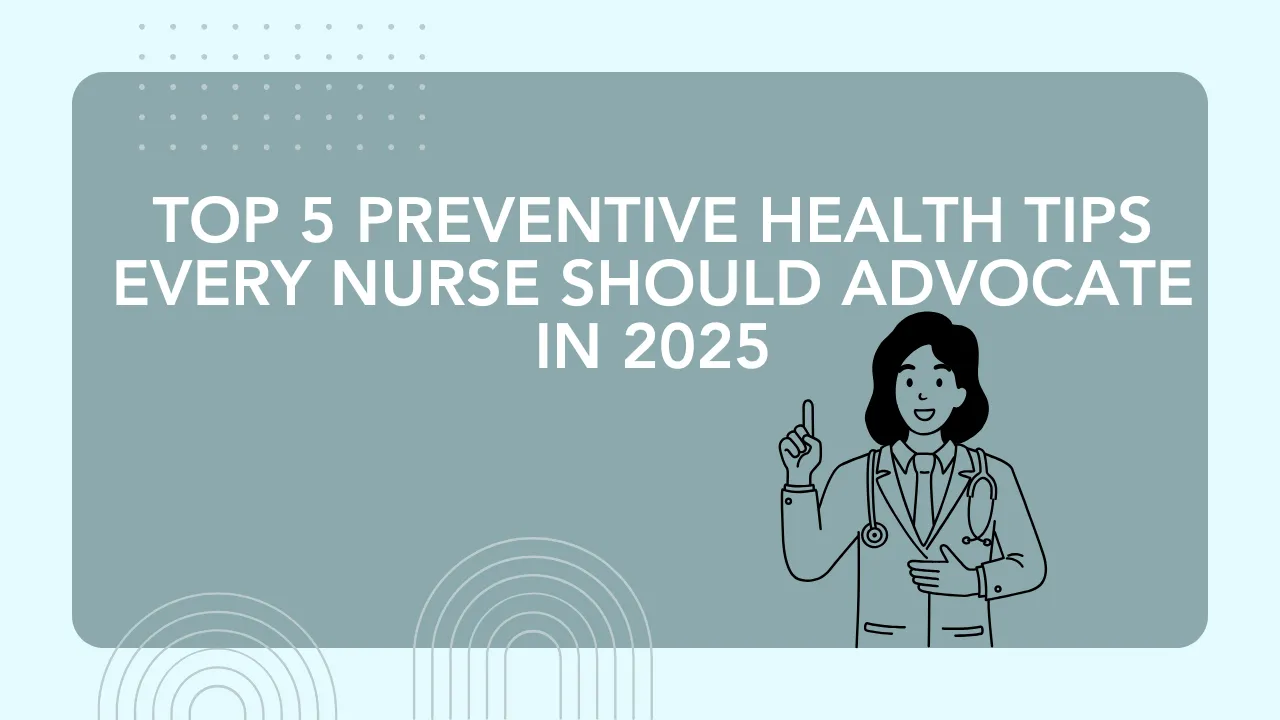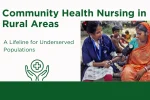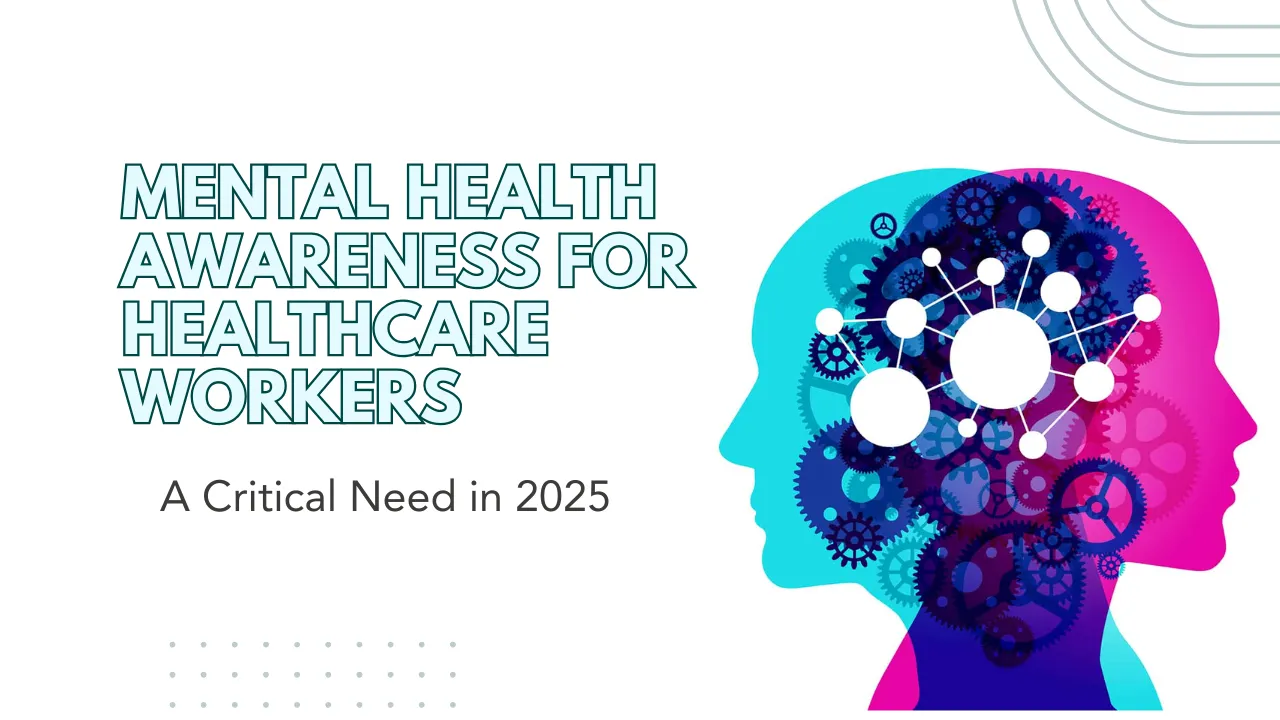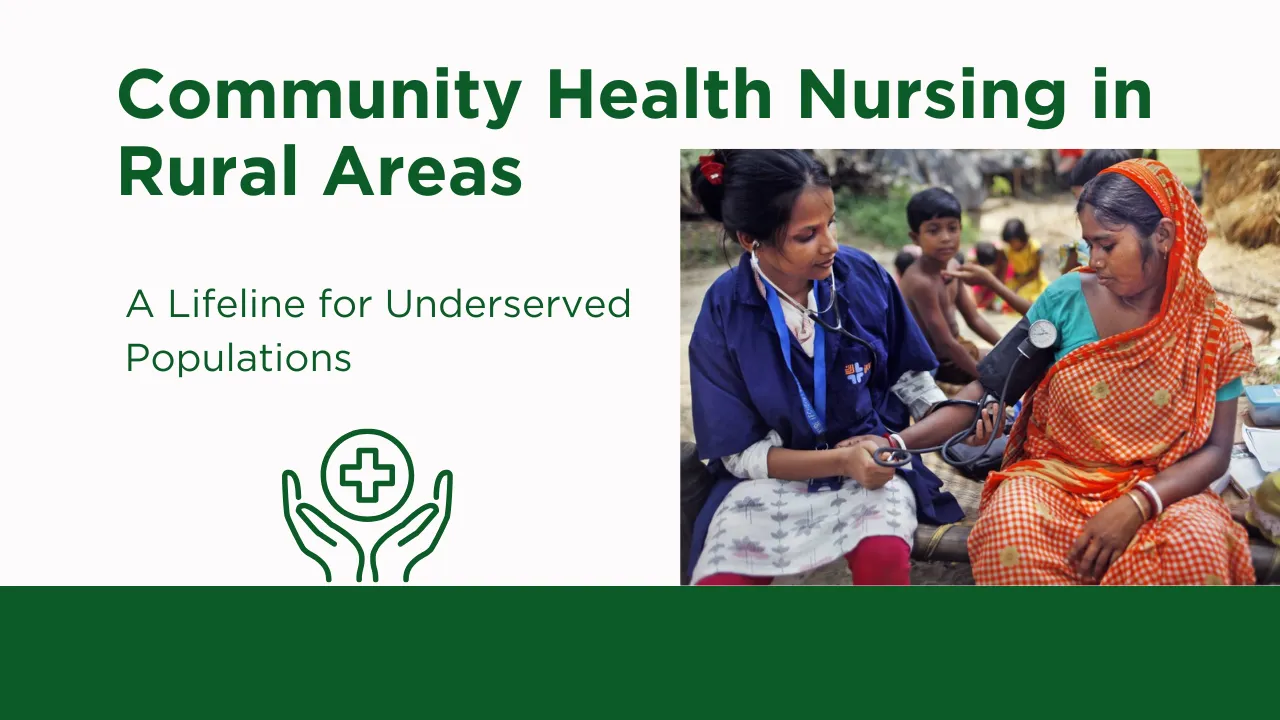Top 5 Preventive Health Tips: As the healthcare landscape in 2025 continues to shift toward holistic and proactive care, nurses remain at the forefront of this transformation. Their daily interactions with patients put them in a unique position to educate, influence, and lead in promoting preventive health. By going beyond treatment and embracing prevention as a core responsibility, nurses can help reduce the burden of chronic diseases, enhance patient outcomes, and contribute to healthier communities.
Here are the top five preventive health strategies every nurse should prioritize and integrate into practice:
1. Champion Vaccination and Immunization
Vaccines remain one of the most powerful tools in public health. In 2025, with global mobility and viral mutations continuing to pose threats, promoting immunization is more essential than ever.
- Stay Updated: Know the national immunization schedule across age groups—children, adolescents, adults, and the elderly—including newer vaccines such as RSV and updated COVID-19 boosters.
- Educate Effectively: Address vaccine hesitancy with patience and facts. Be prepared to counter misinformation with clear, compassionate communication.
- Encourage Accessibility: Facilitate vaccination drives in hospitals, schools, and community centers. Promote walk-in flu shot clinics or mobile vaccination vans where needed.
- Lead by Example: Maintain your own immunization record and speak openly about your vaccination choices to build trust with patients.
2. Promote Healthy Lifestyle Choices
Prevention starts with daily choices. Nurses can guide patients toward habits that enhance long-term wellness and reduce the risk of lifestyle-related diseases.
- Balanced Nutrition: Teach the value of a colorful plate rich in whole foods. Highlight practical tips like reading food labels, preparing home-cooked meals, and controlling portion sizes.
- Regular Physical Activity: Recommend age-appropriate exercise plans. For some, it may mean brisk walking; for others, yoga or strength training. Emphasize movement over perfection.
- Quality Sleep: Sleep hygiene is often overlooked. Encourage consistent sleep routines, screen-free bedrooms, and awareness of sleep disorders.
- Stress Management: Offer tools like mindfulness apps, journaling, or deep breathing exercises. Recognize that stress is both a mental and physical health risk.
3. Advocate for Regular Health Screenings
Preventive screenings save lives—but only if patients are aware and encouraged to participate.
- Know the Guidelines: Be familiar with the latest recommendations for cancer screenings, heart health tests, and metabolic checks.
- Break the Fear Barrier: Demystify the procedures, explain the benefits of early detection, and clarify when screenings are necessary.
- Support Accessibility: Help patients book appointments, offer resources for free or low-cost clinics, and follow up on missed visits.
- Act on Results: Ensure that patients understand their reports and guide them on the next steps—whether it’s treatment, lifestyle change, or more tests.
4. Tackle Tobacco, Alcohol, and Substance Abuse Head-On
These preventable habits continue to fuel chronic illness, mental health challenges, and healthcare costs.
- Routine Screening: Use validated tools (like the AUDIT and Fagerström tests) to identify harmful use early.
- Provide Brief Interventions: A few encouraging words from a trusted nurse can spark meaningful change.
- Educate Without Judgment: Explain how these substances affect the lungs, liver, brain, and heart, and highlight the benefits of quitting.
- Connect to Resources: Recommend helplines, de-addiction centers, or mobile apps designed to support recovery.
5. Prioritize Mental Health and Emotional Well-being
In 2025, mental health must be treated as integral to total health—and nurses are uniquely positioned to create safe, stigma-free spaces for discussion.
- Recognize the Signs: Stay alert to subtle indicators of anxiety, depression, burnout, or trauma.
- Listen Actively: Sometimes, your presence and patience are the best support a patient can receive.
- Normalize Conversations: Use language that reduces shame. Encourage routine mental health check-ups just as you would physical exams.
- Offer Immediate Support: Be ready to administer mental health first aid or refer patients to therapists, counselors, or crisis helplines.
- Teach Coping Techniques: Introduce breathing exercises, journaling prompts, or grounding practices during sessions.
Final Word: Nurses as Preventive Care Champions
In 2025, the role of the nurse extends far beyond bedside care. As educators, advocates, and health coaches, nurses are the heart of prevention. By integrating these five strategies into daily practice, nurses can help individuals make healthier choices, detect illnesses early, and ultimately, reduce the need for reactive medical intervention.
Prevention isn’t just policy—it’s personal. And with each interaction, nurses have the power to make prevention part of every patient’s journey.
















